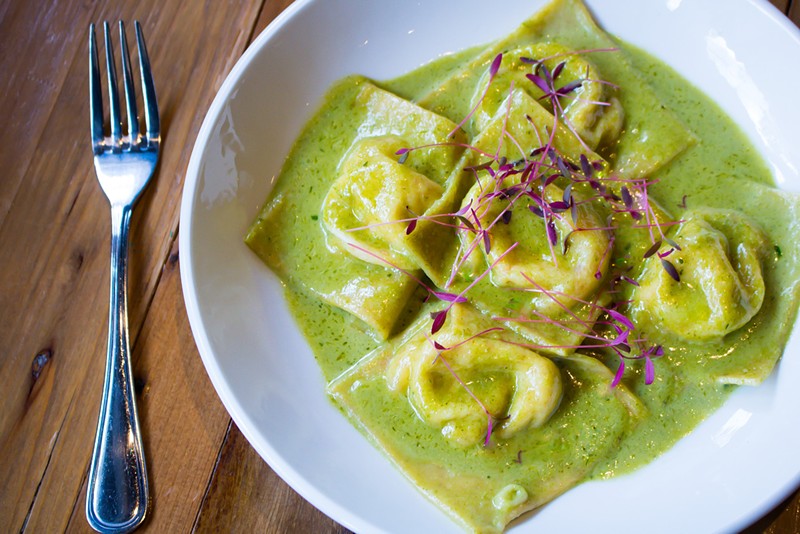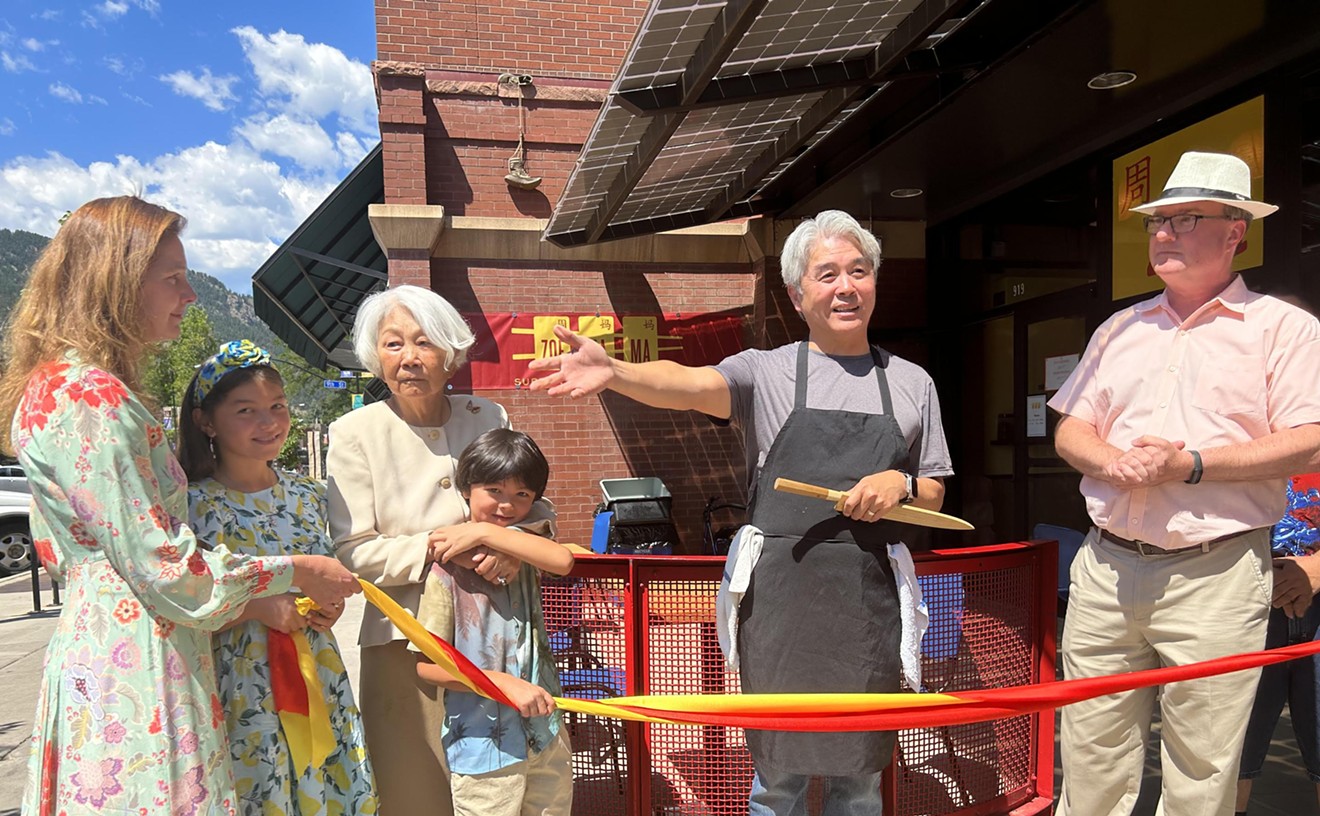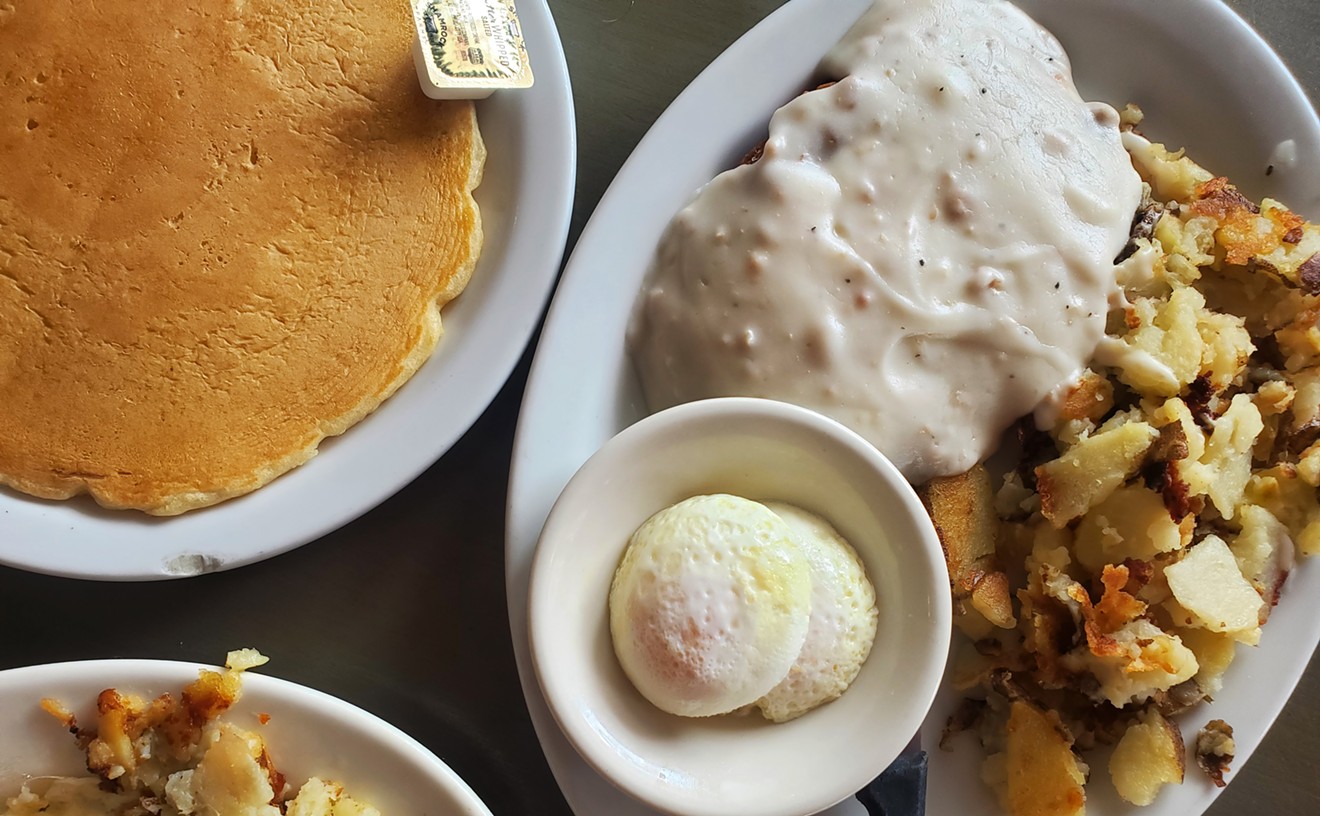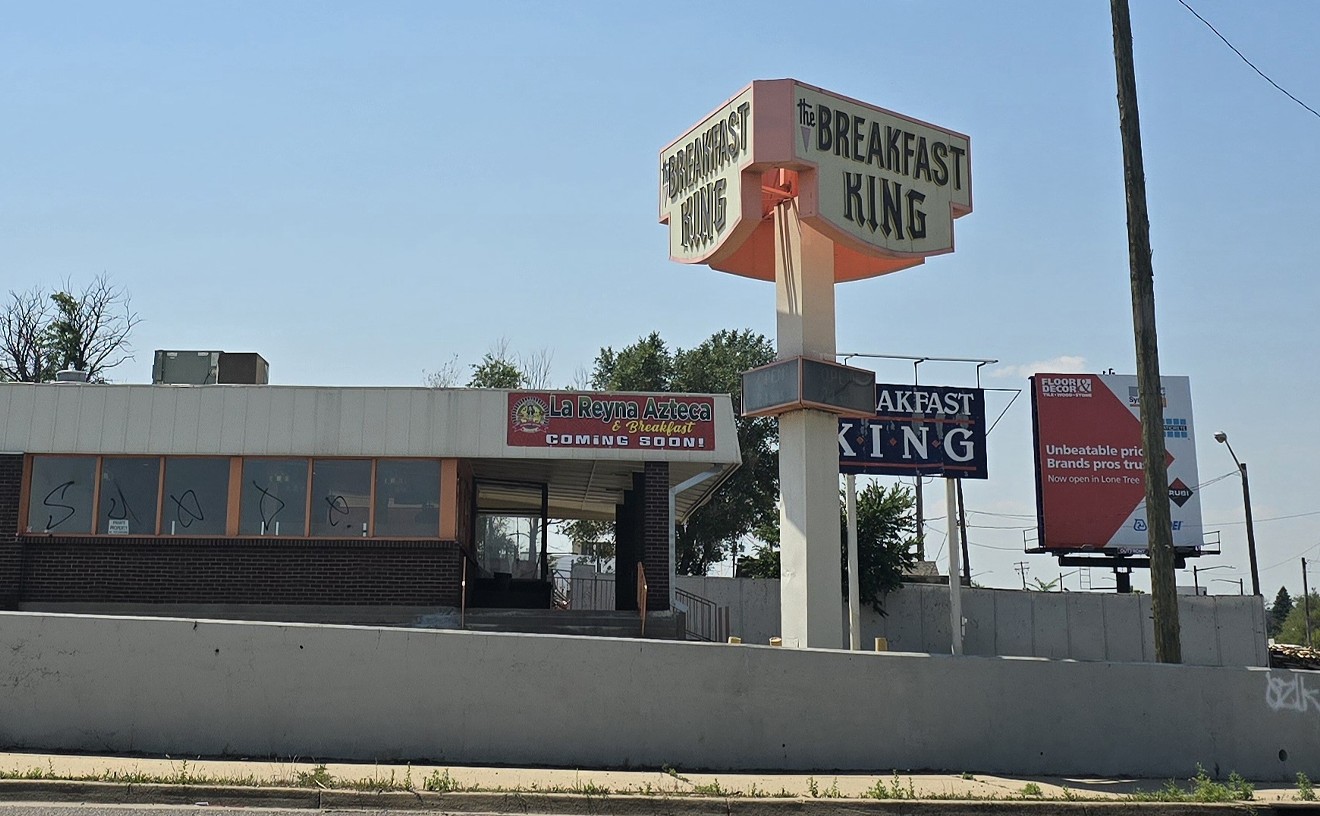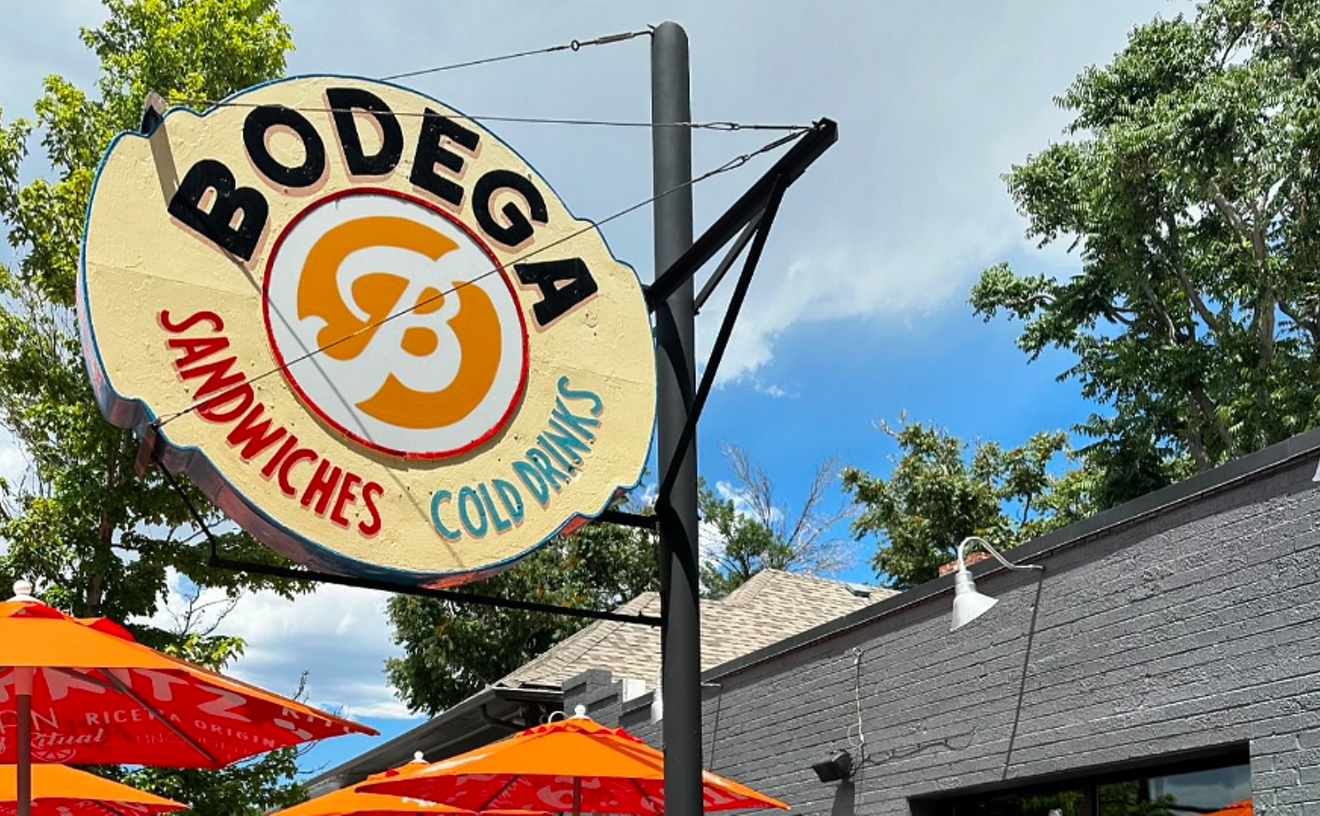Farow, located at 7916 Niwot Road, was founded in 2021 by seasoned culinary pros and husband-and-wife team Patrick and Lisa Balcom. Executive chef Patrick has twenty years of experience in the restaurant industry, and Lisa is a talented pastry chef with a degree in baking and pastry from Johnson and Wales; their resumes include roles at both Blackbelly in Boulder and Ballantyne Hotel & Lodge in Charlotte, North Carolina.
What started out as an idea to open a bakery in Longmont shifted to what is now an elegant farm-to-table restaurant located between Longmont and Boulder, with an overarching goal of improving the restaurant industry and culture while supporting the community. This includes paying farmers a fair wage, using purveyors who prioritize sustainable farming practices, working with farmers who are focused on soil regeneration, and paying employees a living wage.
As part of its ethos, 90 percent of Farow's ingredients are sourced within just ten miles of the restaurant and come from farms that produce clean, organic produce. The desire is to work with people who truly care about what they’re doing, Lisa explains. Farow uses freshly milled, organic heirloom flours from Moxie; all beef, pork and lamb products come from Buckner Family Ranch in Longmont; and winter produce comes from Jolly Radish and Speedwell Farm in Longmont. In late summer, one of the Balcoms favorite farms to work with is Squeak and Squawk in Niwot, which produces raspberries and blueberry-sized grapes.
These efforts resulted in the restaurant's earning a Slow Food Snail of Approval from Slow Food USA for its commitment to ethical sourcing. Opting to source from nearby not only supports local businesses, but also lowers Farow's carbon footprint. This also means that its kitchen staff has to be flexible and able to use what’s available, which can be unpredictable. Because of this, the food menu changes at least once per week, Lisa notes.
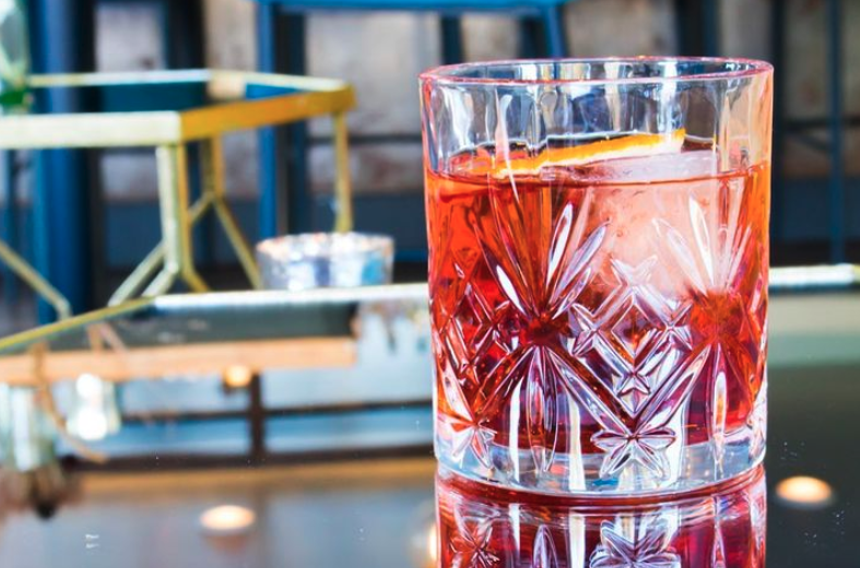
A rotating cocktail menu changes with the seasons and local ingredients available.
Farow / Instagram
Case in point: When the kitchen unexpectedly received some peach peppers from Modern Farmsteads, Adair created an aromatic, chile-infused vodka. When a Buddha’s hand arrived, it sat in vodka for one month, resulting in a bright, refreshing, citrusy martini. “Sometimes I taste something and have that euphoric moment — I have something I know this will go perfectly in,” Adair explains.
In an effort to minimize waste, there is a lot of cross-utilization between the kitchen and the bar. The rind from pomelos (a citrus fruit) is currently being infused in booze for a play on Limoncello. The tops of celery root, which is a common fall menu staple, were made into a tincture by infusing it in vodka that is used in a variation of the classic South Side cocktail.
Adair embraces new techniques, such as molecular gastronomy and playing with foams, in an effort to create interesting, fun cocktails that encourage people to try something different. Part of that means stocking the bar with unique bottles, such as Bitter Fusetti (an Italian bitter aperitif), which just became available in the United States in January; Aqva, a spiced gin from Italy; and an espresso-infused vermouth. Fresh mint, rosemary, tarragon and edible flowers like borage and nasturtiums are grown on-site for use in the cocktails, as well, and ingredients like grenadine and Kahlua are made in house.
When it comes to choosing wine and spirit purveyors, there is a focus here on how those products are made. “We’re featuring people that put the same amount of care into what they’re doing as what we do with our food," Lisa says.
The goal is to source organic and biodynamic wines, typically from smaller wineries, with options that rotate regularly and are chosen based on the food menu. While a customer may not find a past favorite on the menu when they return, the hope is that the staff can steer guests toward trying something new and discovering a wine they love.
The available canned and bottled beer and cider all come from local Colorado breweries, including Odd 13, Horse & Dragon, Stem Cider and St. Vrain Cidery. Mocktails are not an afterthought, either. Even the simple Shirley Temple here is made with house lemon-lime soda and from-scratch pomegranate grenadine.
Cocktail classes are another way that Balcom and Adair are getting guests to engage with beverage in a fun and interactive way. Upcoming offerings include a sold-out amaro-focused session on February 25 and a March 18 technique class from 3 to 3 to 4 p.m., where guests will learn how to create their own signature drink. Tickets are $70.
Farow is located at 7916 Niwot Road in Niwot and is open from 4 to 8 p.m. Tuesday through Thursday and 4 to 9 p.m. Friday and Saturday. For more information, visit farowrestaurant.com.

